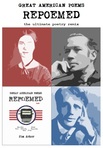date newest »
newest »
 newest »
newest »
message 1:
by
[deleted user]
(new)
Aug 07, 2012 10:21AM
Jim, The best source for explaining the differences between Johnson and Franklin is Franklin's introduction to the three-volume Variorum edition of Dickinson's poems.(Harvard UP, 1998.) As he says, "it was accomplished after the reconstruction of the fascicles reported in *The Manuscript Books of Emily Dickinson" and therefore had "a sturdier base upon which to study handwriting and assign dates" than the manuscripts Johnson relied on--many of them photostats of poems in Millicent Todd Bingham's possession at the time. Franklin studied the poet's manuscripts carefully, dating them according to the poet's handwriting, the paper she used, the way the pinholes lined up (fitting the pages together as Dickinson sewed them), and other details. Thus he produced a more accurate edition than Johnson's, although Johnson's was a great accomplishment in 1955. Franklin found both that some poems in Johnson were actually parts of two different poems, and that other poems appeared as separate mss. when they actually belonged together. Franklin's edition is now the gold standard, but further work on Dickinson's mss. continues, and more discoveries or revisions are likely in the future. Hope this helps, Susan Snively
reply
|
flag
 Susan wrote: "Jim, The best source for explaining the differences between Johnson and Franklin is Franklin's introduction to the three-volume Variorum edition of Dickinson's poems.(Harvard UP, 1998.) As he say..."
Susan wrote: "Jim, The best source for explaining the differences between Johnson and Franklin is Franklin's introduction to the three-volume Variorum edition of Dickinson's poems.(Harvard UP, 1998.) As he say..."Thanks for the info! One of these days I do plan to purchase Franklin's variorum edition (perhaps I'll ask Santa Claus to check into this for me this December). In the meantime, I'm having fun comparing Johnson's collection to Franklin's.
 cf. Virginia Jackson's Dickinson's Misery for an insightful analysis of Johnson and Franklin's dove-tailing of Dickinson's poetry. Several of the poems in Johnson and Franklin may not be poems at all. Additionally, you should take a look at Jen Bervin and Marta Werner's recent The Gorgeous Nothings -- impressively beautiful facsimile collection of Dickinson's envelope poems as she actually composed them.
cf. Virginia Jackson's Dickinson's Misery for an insightful analysis of Johnson and Franklin's dove-tailing of Dickinson's poetry. Several of the poems in Johnson and Franklin may not be poems at all. Additionally, you should take a look at Jen Bervin and Marta Werner's recent The Gorgeous Nothings -- impressively beautiful facsimile collection of Dickinson's envelope poems as she actually composed them.
 Emily Dickinson was a great poet, a genius and a lousy speller. I understand retaining how she left her poems, punctuation and format, though some of it seems capricious, but Franklin's insistence on retaining even her misspellings is idolatrous. It ain't the Bible. A big responsibility of an editor in that bygone era before spell check was to catch and correct misspelled words, and Johnson followed through. It wasn't deliberate misspelling on Dickinson's part. In Franklin some misspellings are eventually corrected. By and by Emily found a dictionary.
Emily Dickinson was a great poet, a genius and a lousy speller. I understand retaining how she left her poems, punctuation and format, though some of it seems capricious, but Franklin's insistence on retaining even her misspellings is idolatrous. It ain't the Bible. A big responsibility of an editor in that bygone era before spell check was to catch and correct misspelled words, and Johnson followed through. It wasn't deliberate misspelling on Dickinson's part. In Franklin some misspellings are eventually corrected. By and by Emily found a dictionary.



